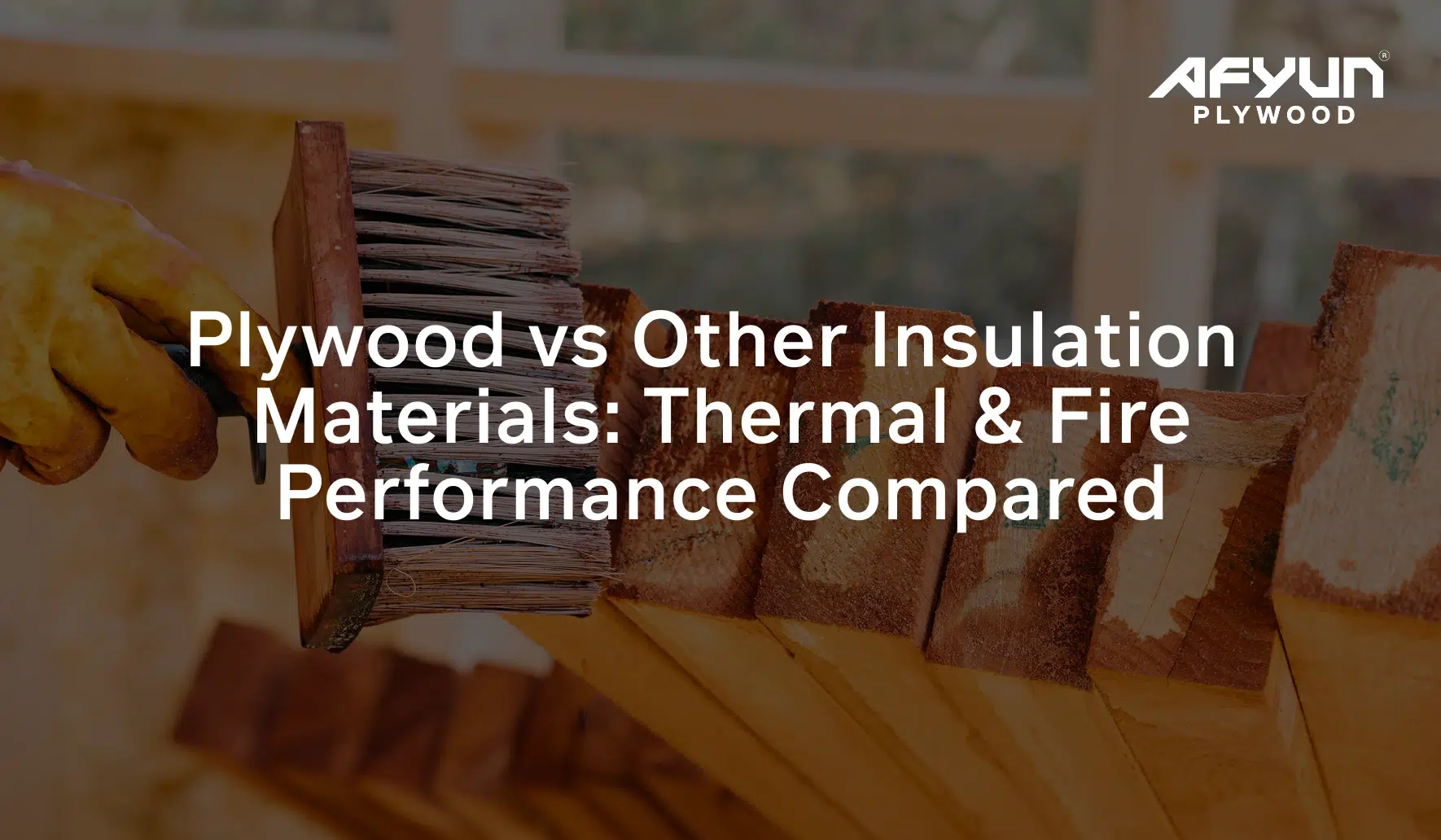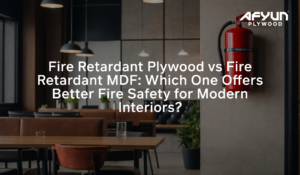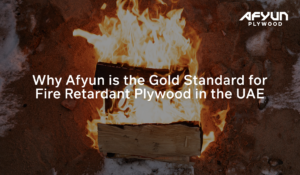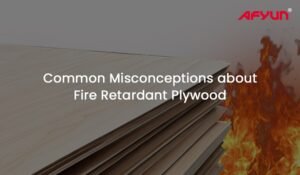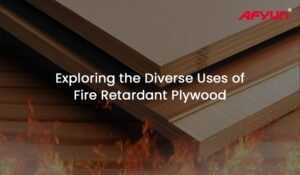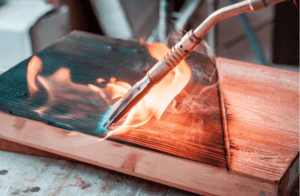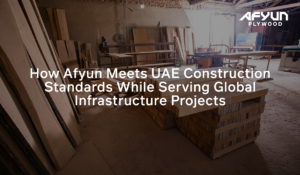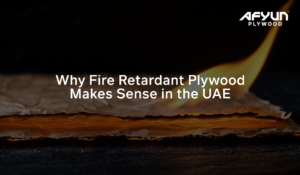Thermal insulation is essential in both residential and commercial construction to enhance energy efficiency, maintain comfort, and protect property. Plywood, a highly popular engineered wood product, is often chosen for its structural benefits and notable thermal properties.
But how does it stack up—particularly against alternatives like particle board, MDF, and EPS foam, which are known to have poorer fire insulation properties. Below is a clear comparison and easy explanation suited for builders, homeowners, and anyone considering material choice.
Understanding Thermal Insulation
- Thermal conductivity (K value): Indicates how easily heat passes through a material. Lower K = better insulation.
- Thermal resistance (R value): Resistance of a material to heat flow. Higher R = better insulation.
- Fire insulation property: How well a material resists or slows the spread of fire.
Plywood: Thermal Insulation Performance
- Thermal Conductivity: ~0.115 W/m·K for softwood plywood.
- Thermal Resistance: For 12mm plywood, R ≈ 0.10 m²·°C/W. For 25mm, R ≈ 0.22 m²·°C/W.
- Insulation Ability: Decent insulation for its thickness. Not a leading insulator like mineral wool but better than many inexpensive alternatives.
- Reaction to Heat: Plywood chars and loses strength above 90–150°C, and at higher temps (>150°C) can combust, so it’s not inherently fireproof but forms a char layer that insulates underlying material.
- Applications: Used as a base for insulation layers or on its own where moderate insulation is required.
- Fire Insulation: Better than EPS foam and untreated particle board/MDF, but not as good as specialized fire-resistant boards.
Other Materials
1. Particle Board
- Thermal Conductivity: 0.065–0.13 W/m·K
- Thermal Resistance: Slightly better than plywood due to density and air pockets, but variable with thickness.
- Fire Resistance: Prone to rapid ignition, particularly those made from recycled or lower-quality wood. Burning rate and mass loss are higher than plywood, and composition/additives often worsen fire performance.
2. Medium Density Fiberboard (MDF)
- Thermal Conductivity: 0.11–0.17 W/m·K
- Thermal Resistance: Similar to or slightly worse than plywood for standard grades.
- Fire Resistance: Standard MDF performs poorly in fire—flame-retardant types are needed for fire safety and can provide ratings of 30–90 minutes, but at added cost.
3. Expanded Polystyrene (EPS) Foam
- Thermal Conductivity: 0.035–0.037 W/m·K
- Thermal Resistance: High for its thickness—commonly used in insulation.
- Fire Resistance: Not fire safe in its raw form. Melts, burns rapidly, releases toxic smoke, and is typically banned in areas requiring fireproofing unless treated with special flame retardants. Even then, safety is limited compared to mineral wool or treated wood.
Comparison Table
| Material | Thermal Conductivity W/m·K | Insulation (R value, typical*) | Fire Insulation (Untreated) |
| Plywood | 0.115 | R≈0.10 (12mm) | Chars, slows spread, better than most |
| Particle Board | 0.065–0.13 | R≈0.11 (12mm est.) | Poor; rapid ignition, high loss |
| MDF | 0.11–0.17 | R≈0.10 (12mm est.) | Poor; unless FR type, burns easily |
| EPS Foam | 0.035–0.037 | R≈0.34 (12mm est.) | Very poor; melts, toxic smoke |
*R values are approximate and vary with thickness and density.
Key Takeaways
- Plywood offers a balance of insulation and moderate fire safety: It insulates better than many alternatives while providing some inherent fire resistance due to char formation, though it is not fully fireproof.
- Particle board and MDF provide low-cost insulation but are fire hazards unless specifically treated. Their insulation is on par with plywood but less safe in fire scenarios.
- EPS foam excels in thermal insulation but fails badly for fire safety: It should never be used without fire-retardant treatment in areas requiring any level of fire resistance.
- For high fire safety, mineral wool, glass wool, or specially treated (FR) boards should be chosen.
Where Plywood Works Best As An Insulator
Plywood is ideal as a structural substrate that also adds some insulation in roof decks, wall sheathing, and flooring systems, especially when combined with mineral wool or glass wool.
It helps reduce heat gain in hot climates and heat loss in cold climates but should be seen as part of a layered assembly, not the only insulating layer.
When To Combine Plywood With Other Insulation
In energy‑efficient construction, plywood is often paired with insulation boards (mineral wool, glass wool, or rigid boards) to reach target R values for walls, roofs, and floors.
This hybrid approach keeps the structural strength of plywood while letting the insulation layer handle most of the thermal resistance and fire safety.
Practical Guidelines For Safe Material Selection
Use plywood or fire‑retardant plywood near escape routes, shafts, and service areas, and avoid exposing untreated EPS or standard MDF/particle board where fire spread is a concern.
For high‑risk zones (staircases, corridors, external façades), codes increasingly favour non‑combustible or FR‑rated systems, with combustible boards protected behind plaster, cement boards, or masonry.
Energy Efficiency And Comfort In Indian Climates
In hot and humid cities, pairing plywood sheathing with reflective or ventilated roof systems and proper insulation can significantly cut cooling loads and improve indoor comfort.
In mixed climates, plywood helps stabilize interior temperatures by slowing rapid heat flow, but final performance depends on assembly design, airtightness, and correct installation.
Choosing the Right Material
Ready to upgrade your building’s energy performance with the right blend of strength and insulation? Discover the perfect plywood and insulation solutions at Afyun!
Consult with our experts to find the right materials for your next project, boost your energy savings, and build smarter for the future. Contact Afyun today and insulate your world the right way!
Other Locations
Plywood Suppliers in Kerala | Plywood Suppliers in Bangalore | Plywood Suppliers in Chennai | Plywood Suppliers in Hyderabad | Plywood Manufacturers in Mangalore | Plywood Manufacturers in Coimbatore | Plywood Manufacturers in Tamilnadu | Plywood Manufacturers in Mysore | plywood manufacturers in india | Plywood Manufacturers in Kerala | Plywood Manufacturers in Bangalore | Plywood Manufacturers in Chennai | Plywood Manufacturers in Hyderabad
